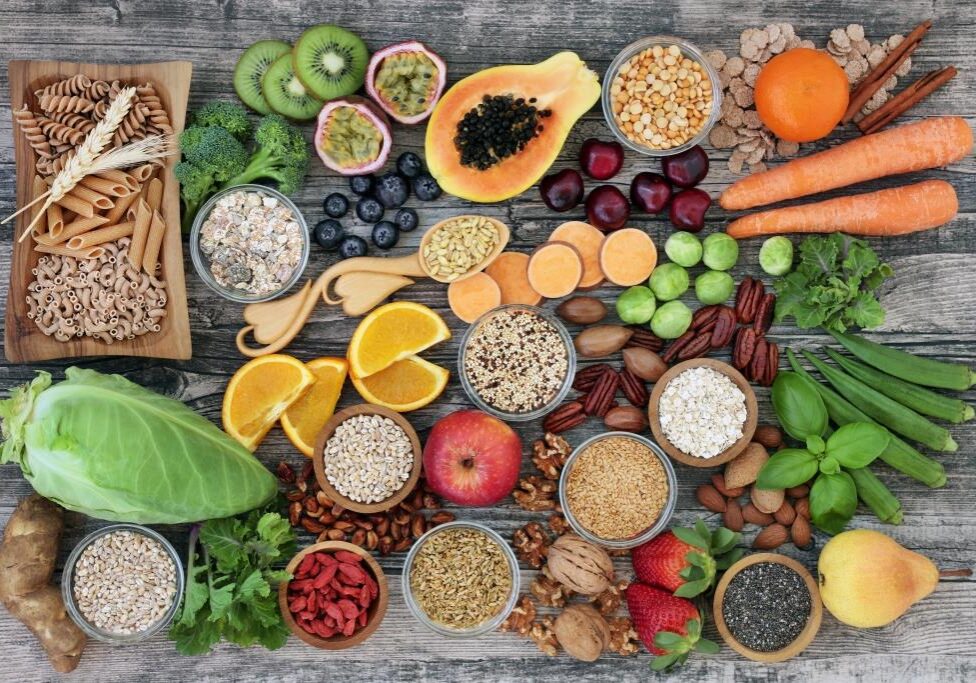“Probiotics versus prebiotics” sounds adversarial, doesn’t it? But let’s define these terms and see what their relationship is all about.
Probiotics are the beneficial organisms that ferment our food, giving us the delicious sauerkraut, kimchi, pickled slaw, vegetables, sriracha, salsa, and more that wildbrine brings to our tables. These little miracle workers transform raw vegetables into something new and very beneficial. For example, they turn cabbage, peppers, seaweed, and vegetables into kimchi, a fermented food that explodes with passionate flavor.
The probiotic microbes enter our bodies when we eat these fermented foods. While sugars can be absorbed in the small intestine, starches and fiber-containing foods aren’t digested until they reach the large intestine. There they are colonized by beneficial probiotic microbes that make up our microbiome. This microbiome is so important to our health that we can’t live without it. It produces enzymes that synthesize vitamins K and B12, and enzymes that turn starches and fibers into short-chain fatty acids that our bodies use as food. It also regulates our immune system, communicates with our brains and nervous systems to produce stability, aids muscle function, and keeps bowel diseases and other illnesses at bay.
Dr. Marc Rothenberg, director of the division of allergy and immunology at Cincinnati Children’s Hospital Medical Center, recently wrote in the June issue of the New England Journal of Medicine that irritable bowel syndrome (IBS) may be caused by an infection in the digestive tract that triggers a localized allergic reaction in the gut. The infection disrupts the layer of intestinal cells that prevents allergy-producing proteins in foods from being absorbed. Dr. Rothenberg noted that “common gastrointestinal ailments may be food-induced allergic disorders.”
A healthy microbiome of probiotic organisms protects the intestinal walls from infection and prevents allergens from entering the bloodstream. Pathogens can’t get a toehold when the gut is colonized by good guys. In a recent review in the Journal of the American Medical Association Network, Dr. Michael Camilleri, a Mayo Clinic gastroenterologist, reported that the probiotic Bifidobacterium longum reduced depression and improved the quality of life for patients suffering from IBS.
To sum up: probiotics are microbes that exist around us and within us and are an essential part of our good health. Outside of us, they ferment our foods, increasing their nutritional value and enhancing their flavor, and inside of us, form a symbiotic organism that helps digest our food and regulates crucial body functions. They partner with us on our journey through life, and it behooves us to eat foods that contain them and to eat those foods that they thrive on.
So is there Really a Probiotics Versus Prebiotics Issue?
Nope… which brings us to prebiotics.
Prebiotics are those foods that our microbiome feeds on. A lot of what we eat can’t be broken down by our gastric juices, or other inherent body systems. However, our microbiome can break them down and make them into short-chain fatty acids that our bodies can absorb and use to function properly.
Prebiotics are foods that provide indigestible carbohydrates and fibers such as inulin, resistant starches, gums, pectins, and saccharides that feed our beneficial microbiota. Many common foods naturally contain prebiotics. The highest amounts are found in garlic, onions, leeks, asparagus, Jerusalem artichokes, dandelion greens, bananas, and seaweed. In general, fruits, cabbage family vegetables, beans, and whole grains like wheat, oats, and barley are all good sources of prebiotic fibers.
Here at wildbrine, we focus on including prebiotics in our recipes that our probiotic friends really love. Our fermentation process jump-starts the digestive process. But the best part is when you get our products home and enjoy their flavor and nutrition at your table.
So, you see, there’s no “probiotics versus prebiotics” adversarial relationship – they are as tightly linked as the food that feeds the creatures that eat it. In the case of wildbrine fermented products, that’s us and the microbes that help keep us alive.
About the Author: Sonoma County resident Jeff Cox is the author of 24 books, including The Essential Book of Fermentation (Avery, 2013)
